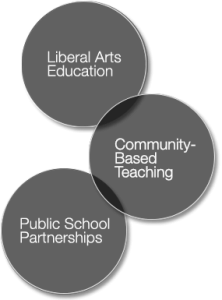 Below is a list of interview questions that a human resources specialist at a major west coast media company keeps in rotation for evaluating potential hires.
Below is a list of interview questions that a human resources specialist at a major west coast media company keeps in rotation for evaluating potential hires.
Note that none of these ask about your major, your GPA, the specific jobs or positions you’ve held, your awards, or your coursework (though some of these elements of your resume might help you get the interview). They all ask, one way or another, “how do you interact with people? how do you cope with conflict and stress? can you pull your weight without being annoying?”
The only way to prepare for questions like these is to have good stories to tell about your experience. The more experience you have, the more stories you can tell.
- Tell me about a time when you were “thrown in the deep end.” What did you learn about yourself as a result?
- What’s given you your greatest sense of accomplishment or been your greatest achievement so far? Why?
- Tell me about a time when you saw a potential problem on the horizon. How did you recognize that the problem was going to occur in the first place? What did you do to try to prevent this problem from occurring?
- Give me an example of a time when you had to absorb complex information or learn a complex task. How did you go about learning it? What did you do to ensure you learned it?
- Tell me about a work-related mistake you’ve made and how you learned from this.
- Tell me about a time when everything around you was going wrong. How did you deal with the situation?
- Tell me about a time when you worked in an environment that was inhabited by people with a negative attitude. How did you react and cope with this?
- How would people who have worked with you describe the way you handle stress and pressure? Give me an example of a time when you were under stress and pressure to deliver results. What could we expect if you were under stress and pressure here at work?
- Tell me about a time when your manager asked you to do something with which you did not agree. What did you do?
- Tell me about a situation where you went out of your way to spend extra effort or energy on something. What was it and what made you do this?
- Give me an example of time when you worked within a team that was dysfunctional and wasn’t operating effectively. What was your role? What did you do to make things better?
- Think about the most challenging colleague you have had and tell me how you handled working with that person. What would you have done differently in retrospect?
- Give me a specific example of a time when you were involved in a workplace conflict. What did you do to resolve the conflict?
- What types of people do you prefer to work with? Which kinds of people do you like working with the least? Why? How do you make yourself cope with people you don’t like? How do you handle people that don’t like you?
- Tell me about a time where you had a manager who wasn’t particularly good at motivating you. How did you motivate yourself? What did you wish your manager did to help you feel motivated?
- Tell me about a time when you had to persuade or influence a peer. How did you go about doing this? What was the result?
Even if an actual job interview is a long way in your future, it’s worth thinking about how you would answer these questions now, based on your life experience so far. Then ask yourself, how can you acquire better stories to tell? What opportunities do you have to learn more about how you work with other people? What are your strengths and weaknesses as a team member and how can you build on them?

 Whether your career plan involves grad school, finding an internship, or applying for jobs, the prospect of rejection looms.
Whether your career plan involves grad school, finding an internship, or applying for jobs, the prospect of rejection looms. n October, we had a post on
n October, we had a post on